While J. J. Abrams' Star Wars: The Force Awakens received almost unanimous praise from critics, the reaction amongst diehard fans was noticeably more mixed. Some of the film's detractors downplayed the positive critical response by comparing it to the initial success met by George Lucas' The Phantom Menace back in 1999. Nowadays that film is held in low esteem by most fans and critics, but some claim it wasn't so at the time of its original release. The funny thing is, I seem to recall The Phantom Menace getting a positive reception myself. Is my memory playing tricks on me, or did fans and critics alike truly embrace Lucas' vision back in the day? And if so, what changed to make everyone hate it in the years that followed?
This brings me to the subject of Batman Forever. Like Lucas' Star Wars prequels, Batman Forever is a film that suffers a bad rep these days. But there are fans of the film who swear it was a hit when it first came out. Not only in commercial terms, but amongst critics and fans also. And once again, I have to say my own memories support this view. I was only a child when Schumacher's movie came out, but I do recall Batman Forever receiving a warmer reception than its legacy would suggest. I seem to remember a lot of fans preferring it to Batman Returns in 1995, while nowadays the opposite tends to be true. Is nostalgia distorting my perception of the film's release, or was the initial reaction really so different from the negative appraisals we've grown accustomed to? The purpose of this feature is not to pass judgement on the quality of the film, but simply to examine the reactions it evoked back in the summer of 1995. In order to gauge this response as objectively as possible, we'll need to take into account such factors as critical reaction, accolades and box office performance.
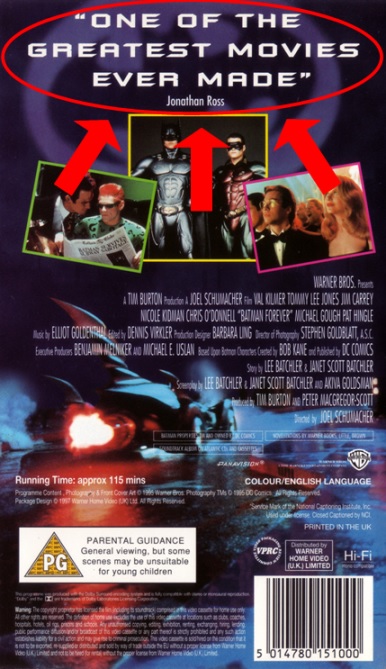 A good place to begin is Rotten Tomatoes, an aggregator site that currently lists 59 reviews for Batman Forever – 24 'fresh', 34 'rotten' and 1 neutral. The end result is an overall rating of 41% 'rotten'. But how many of these reviews accompanied the film's release back in 1995, and how many were added by critics in the subsequent decades? I skimmed through all of the reviews and attempted to determine the original publication dates of each. I found that many of the reviews were not available online, while others simply weren't dated. Personally, I feel if a review isn't accessibly archived then it should be excluded from the aggregator (excepting copyrighted material that is currently in print elsewhere). But even with the reviews available, I was able to confirm that 24 of them were printed in 1995, the year of the film's release. Of those 24, 16 were 'fresh'. Source:Rotten Tomatoes
A good place to begin is Rotten Tomatoes, an aggregator site that currently lists 59 reviews for Batman Forever – 24 'fresh', 34 'rotten' and 1 neutral. The end result is an overall rating of 41% 'rotten'. But how many of these reviews accompanied the film's release back in 1995, and how many were added by critics in the subsequent decades? I skimmed through all of the reviews and attempted to determine the original publication dates of each. I found that many of the reviews were not available online, while others simply weren't dated. Personally, I feel if a review isn't accessibly archived then it should be excluded from the aggregator (excepting copyrighted material that is currently in print elsewhere). But even with the reviews available, I was able to confirm that 24 of them were printed in 1995, the year of the film's release. Of those 24, 16 were 'fresh'. Source:Rotten Tomatoes
So if we calculate a retrospective RT score based purely on these 1995 reviews, we get a rating of 67% 'fresh'. Of further interest is the mysterious 59th review by Matthew Turner, which isn't rated 'rotten' or 'fresh' and also happens to date from 1995. I glanced over the review itself and it seems to be mostly positive. So if we factor that into the mix as an additional 'fresh' review, we get a final RT score of 68% 'fresh'.
Whether it's 67% or 68%, both are considerably more impressive than 41% 'rotten'. Of course these 25 reviews are merely a snapshot of the larger critical response. But then the whole point of aggregator sites like Rotten Tomatoes is to convey a consensus based on a finite sample of reviews. And the consensus amongst the 1995 reviews listed by RT is that Batman Forever was a good film, with almost 7 out of 10 critics giving it the thumbs up. Perhaps not a universally-acclaimed masterpiece, but certainly not the critically-panned disaster contemporary attitudes portray it as.
Further evidence of the film's positive reception can be found in the award nominations it received. There was some outrage amongst comic fans back in 2013 when Christopher Nolan's The Dark Knight Rises was snubbed by the Academy Awards, receiving no nominations in any category. Batman Forever on the other hand was nominated for no less than 3 Oscars: Best Cinematography, Best Sound and Best Sound Effects Editing. And while it didn't win any of these, it nevertheless remains the second most nominated Batman film with the Academy after The Dark Knight (2008). It was also nominated for a Golden Globe, 4 Saturn Awards, 6 MTV Movie Awards and a Grammy. The film's soundtrack earned both a BMI Music Award and a Brit Award. Source: Internet Movie Database
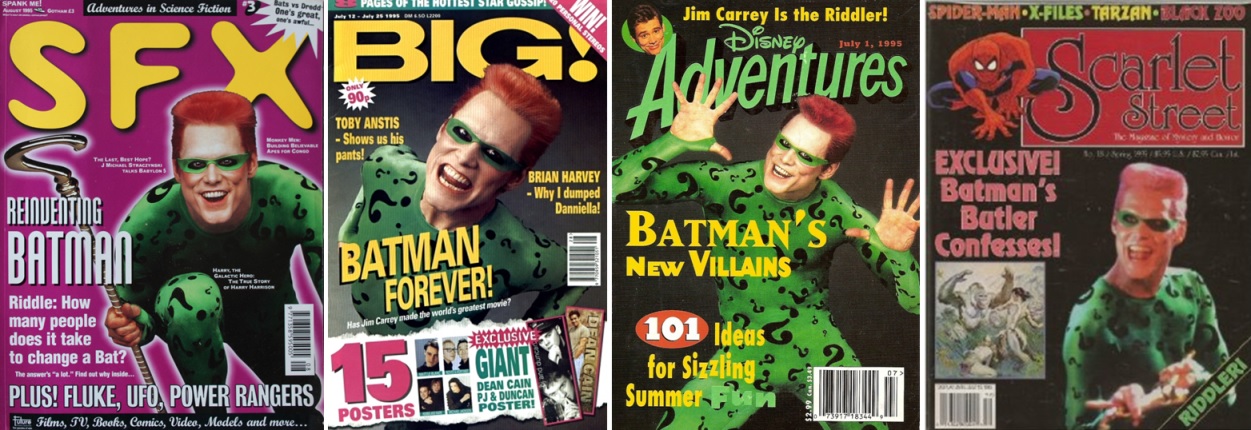
Media hype: Jim Carrey’s Riddler graced the cover of countless magazines in the summer of ’95.
But what about box office performance? Put simply, Batman Forever was a hit. Granted, it didn't make as much money as Tim Burton's Batman (1989), but it did manage to outperform Batman Returns (1992). It grossed a domestic total of $184,031,112, making it the 2nd highest grossing film in the US that year after Toy Story. It also had the biggest opening weekend of 1995. Its worldwide takings were $336,529,144 – only $29.6 million less than Die Hard with a Vengeance, which was the highest grossing film at the global box office that year. If we adjust Batman Forever's domestic gross for 2016 inflation, it comes to $368,062,200. Compare that to the adjusted domestic grosses of the other Batman films, and we find that Batman Forever sold more tickets in the US than Batman Returns (1992), Batman & Robin (1997) and Batman Begins (2005). So it's fair to say it was a commercial success too. Source: Box Office Mojo
To summarise, we have a film that the majority of critics thought was decent, that was nominated for numerous awards (including 3 Oscars and a Golden Globe), and which was commercially successful at the box office. So why, in 2016, is Batman Forever regarded as such as disastrous misstep for the franchise? Did the failure of the sequel, Batman & Robin (1997), retroactively damage people's perceptions of Schumacher's first Batman film? Did the more serious approach of Christopher Nolan's Dark Knight Trilogy throw into emphasis how misguided Schumacher's vision was to begin with? Was Batman Forever simply a spectacle that worked better on the big screen than on video/DVD/Blu-ray? Or has the movie simply aged badly? Maybe our collective tastes have changed with the passing of the years. We could speculate endlessly about the reasons for the shift in attitude. But looking at the evidence, one thing becomes clear – back in 1995, Batman Forever was widely perceived as a triumphant addition to the franchise.
And for many fans in 2016, it still is.
comments powered by Disqus
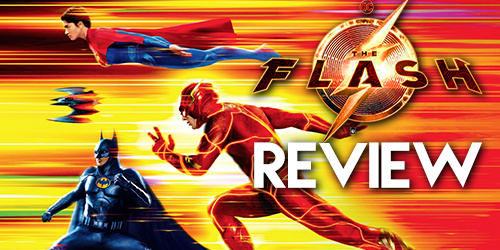
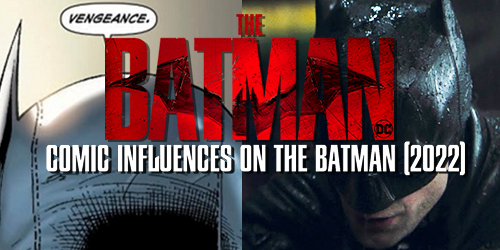
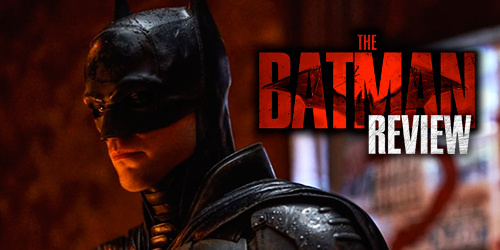

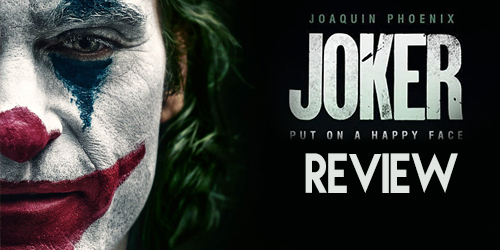
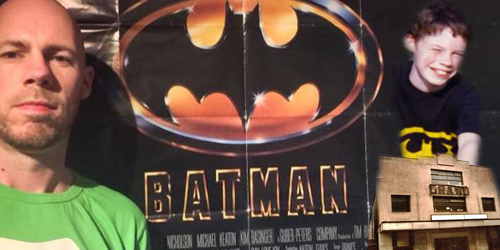
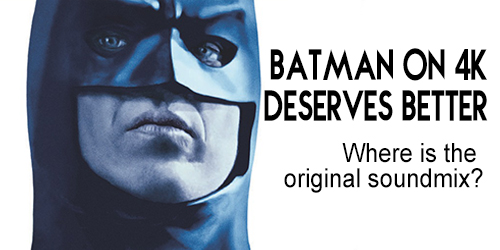
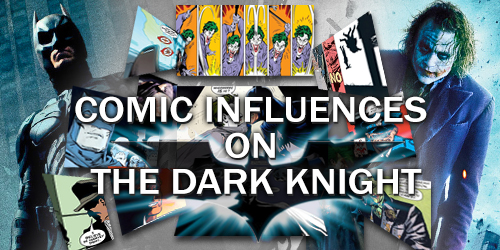

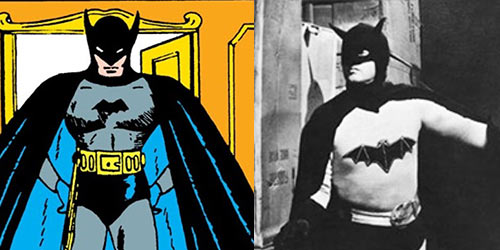
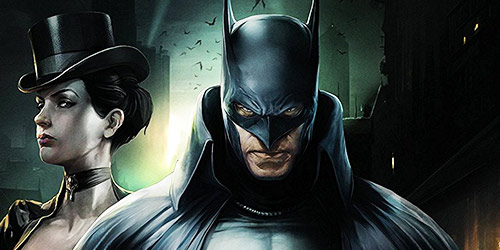
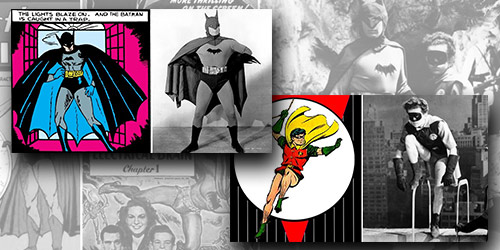
by The Laughing Fish
by The Laughing Fish
by The Laughing Fish
by The Laughing Fish
by The Laughing Fish
by The Laughing Fish
by The Laughing Fish
by The Laughing Fish
by The Dark Knight
by The Joker